THT’s online Board Governance Best practices provides you with the necessary tools to lead and support your hospital or health care system.
Whether you’re building your board from the ground up or seeking improvements and efficiencies for your current board, you can begin here with best practices for good governance.

2023 Board Effectiveness Survey: A Clear Call for Change
Boards worldwide face immense pressures in 2023 and beyond as they continue to contend with the ravages of high inflation, ongoing workforce issues, increased regulatory scrutiny, an unstable economy, and waning trust in board leadership exacerbated by recent high-profile bank failures.
Now in its third year, the OnBoard Board Effectiveness Survey analyzes the trends that contribute to boardroom success or “board effectiveness.” By examining the influence of factors such as technology usage and respondents’ self-described concerns and priorities for their boards and the organizations they serve, our analysis of the survey results intends to demonstrate universal themes and challenges for boards, no matter the sector they serve.
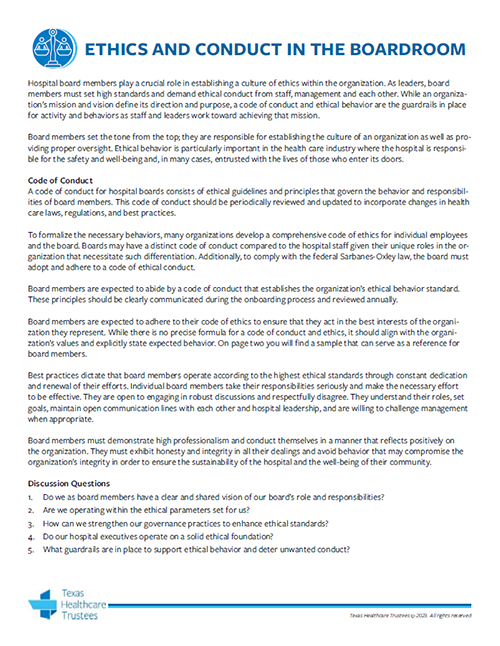
Ethics and Conduct in the Boardroom
Hospital board members play a crucial role in establishing a culture of ethics within the organization. As leaders, board
members must set high standards and demand ethical conduct from staff, management and each other. While an organization’s
mission and vision define its direction and purpose, a code of conduct and ethical behavior are the guardrails in place
for activity and behaviors as staff and leaders work toward achieving that mission.
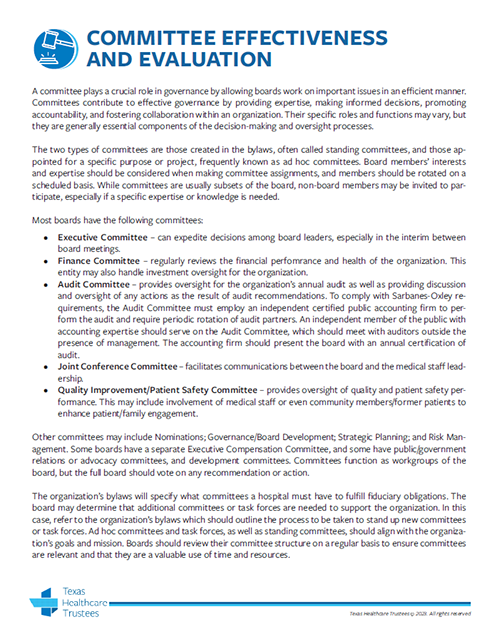
Committee Effectiveness and Evaluation
A committee plays a crucial role in governance by allowing boards work on important issues in an efficient manner. Committees contribute to effective governance by providing expertise, making informed decisions, promoting accountability, and fostering collaboration within an organization.
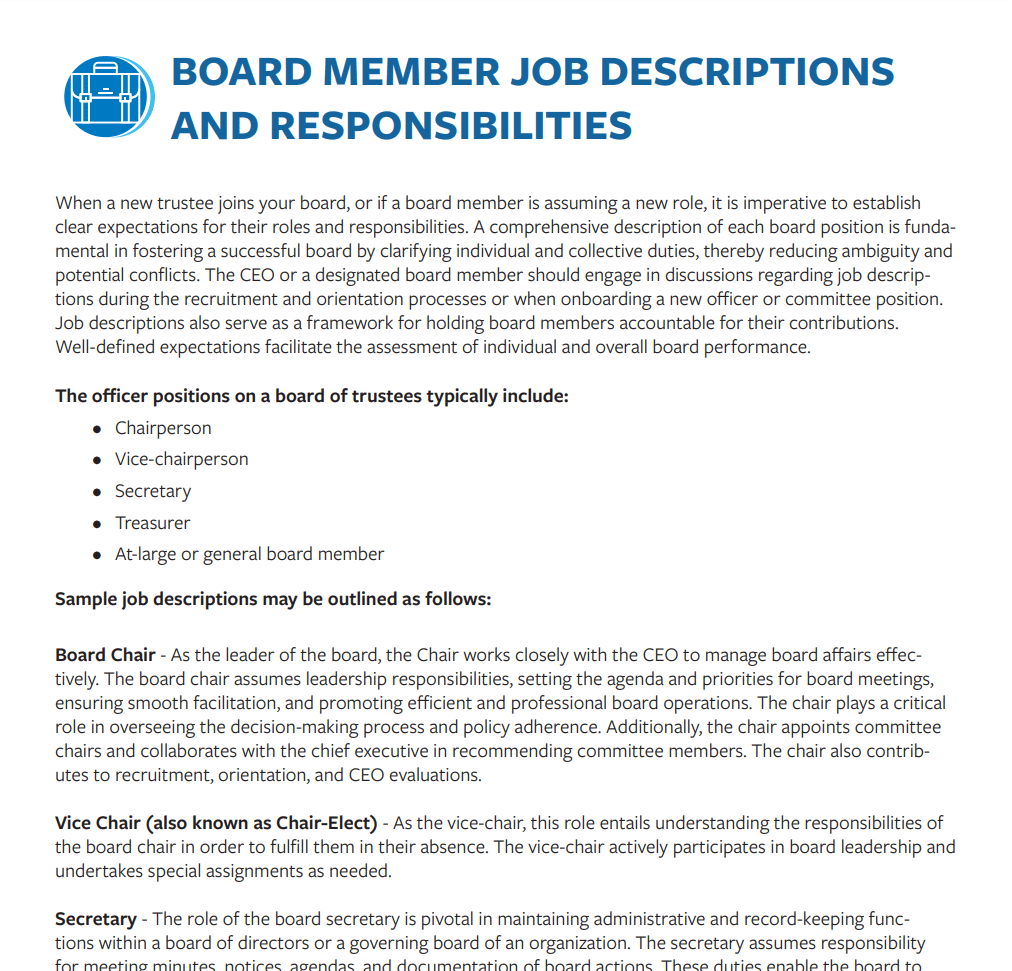
Board Member Job Descriptions and Responsibilities
When a new trustee joins your board, or if a board member is assuming a new role, it is imperative to establish clear expectations for their roles and responsibilities. A comprehensive description of each board position is fundamental in fostering a successful board by clarifying individual and collective duties, thereby reducing ambiguity and potential conflicts.
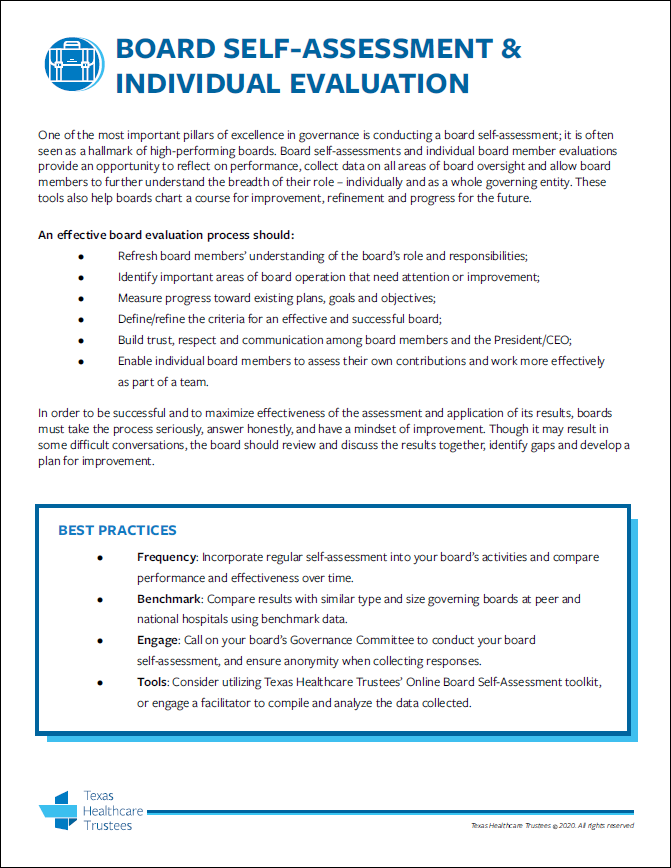
Board Self-Assessment & Individual Evaluation
One of the most important pillars of excellence in governance is conducting a board self-assessment; it is often seen as a hallmark of high-performing boards. Board self-assessments and individual board member evaluations provide an opportunity to reflect on performance, collect data on all areas of board oversight and allow board members to further understand the breadth of their role – individually and as a whole governing entity.
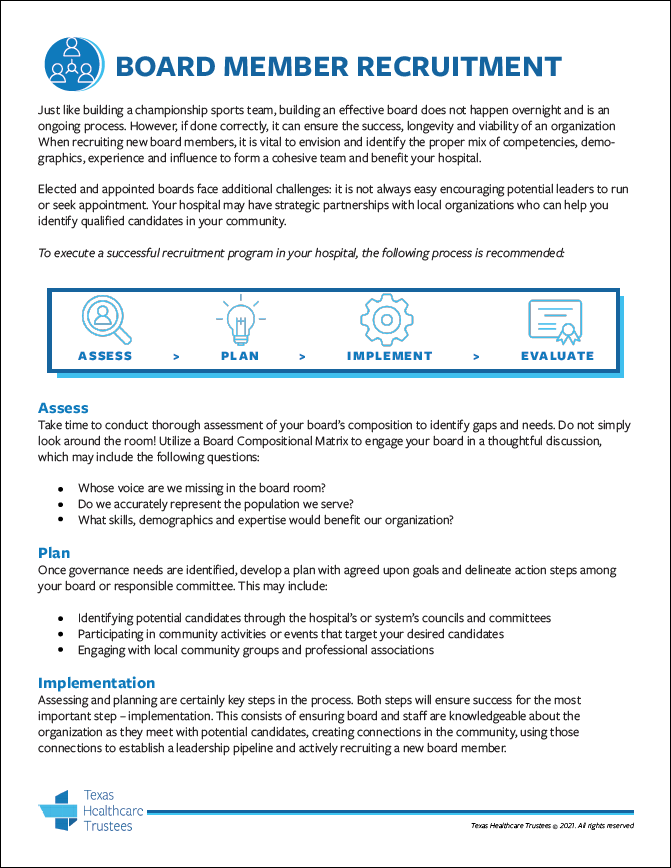
Board Member Recruitment
Just like building a championship sports team, building an effective board does not happen overnight and is an ongoing process. However, if done correctly, it can ensure the success, longevity and viability of an organization When recruiting new board members, it is vital to envision and identify the proper mix of competencies, demographics, experience and influence to form a cohesive team and benefit your hospital.
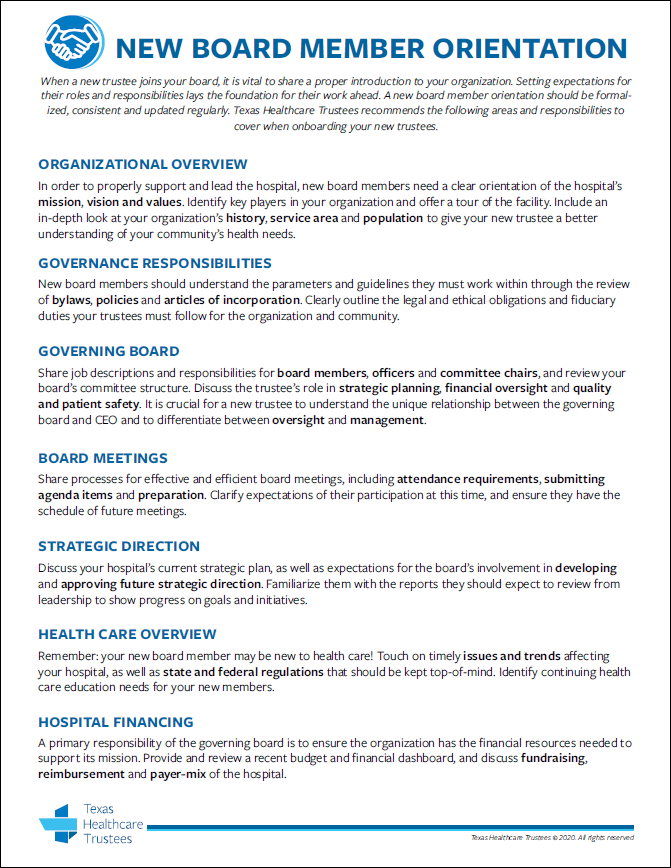
New Board Member Orientation
When a new trustee joins your board, it is vital to share a proper introduction to your organization. Setting expectations for their roles and responsibilities lays the foundation for their work ahead. A new board member orientation should be formalized, consistent and updated regularly.
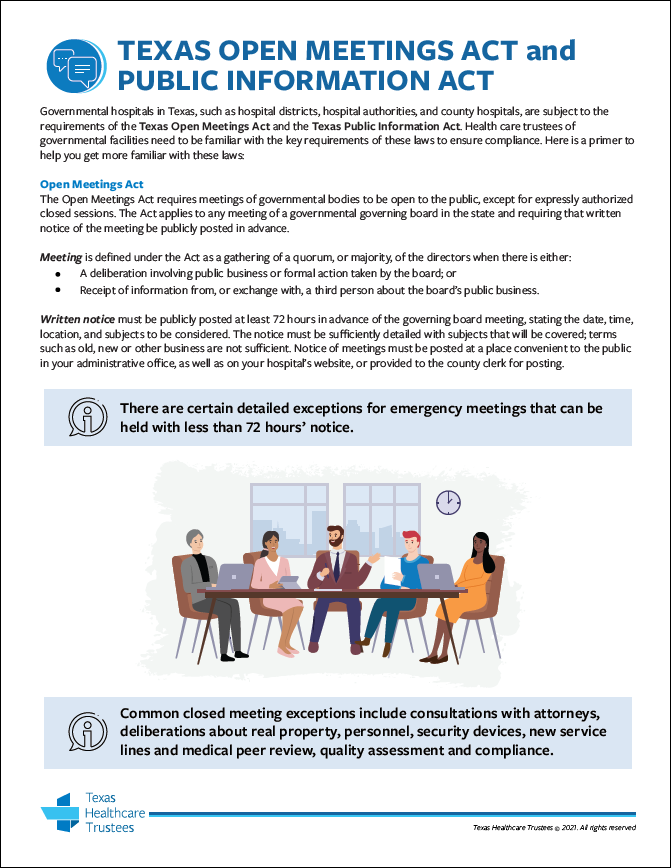
Texas Open Meetings Act and Public Information Act
Governmental hospitals in Texas, such as hospital districts, hospital authorities, and county hospitals, are subject to the requirements of the Texas Open Meetings Act and the Texas Public Information Act. Health care trustees of governmental facilities need to be familiar with the key requirements of these laws to ensure compliance.
